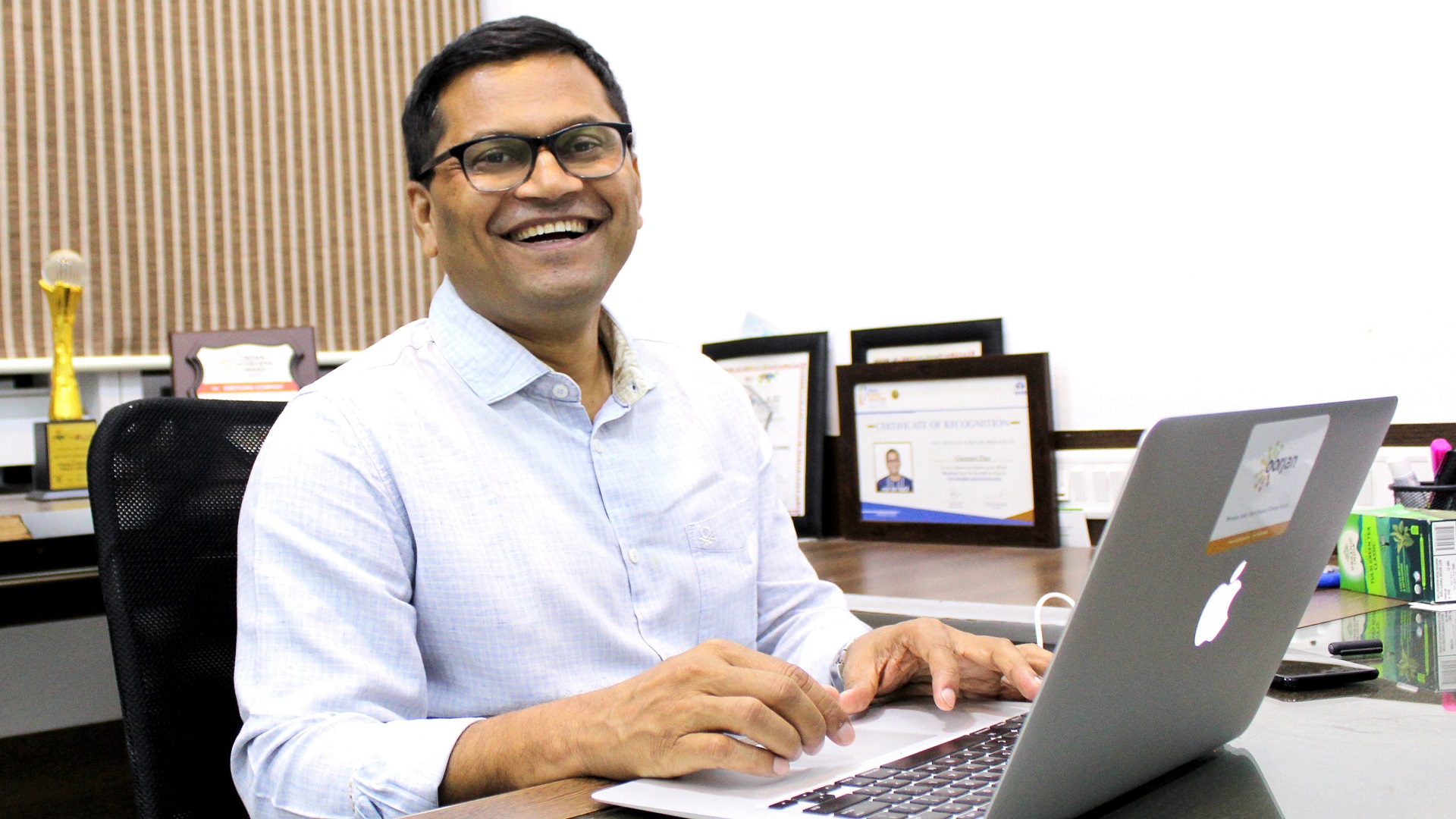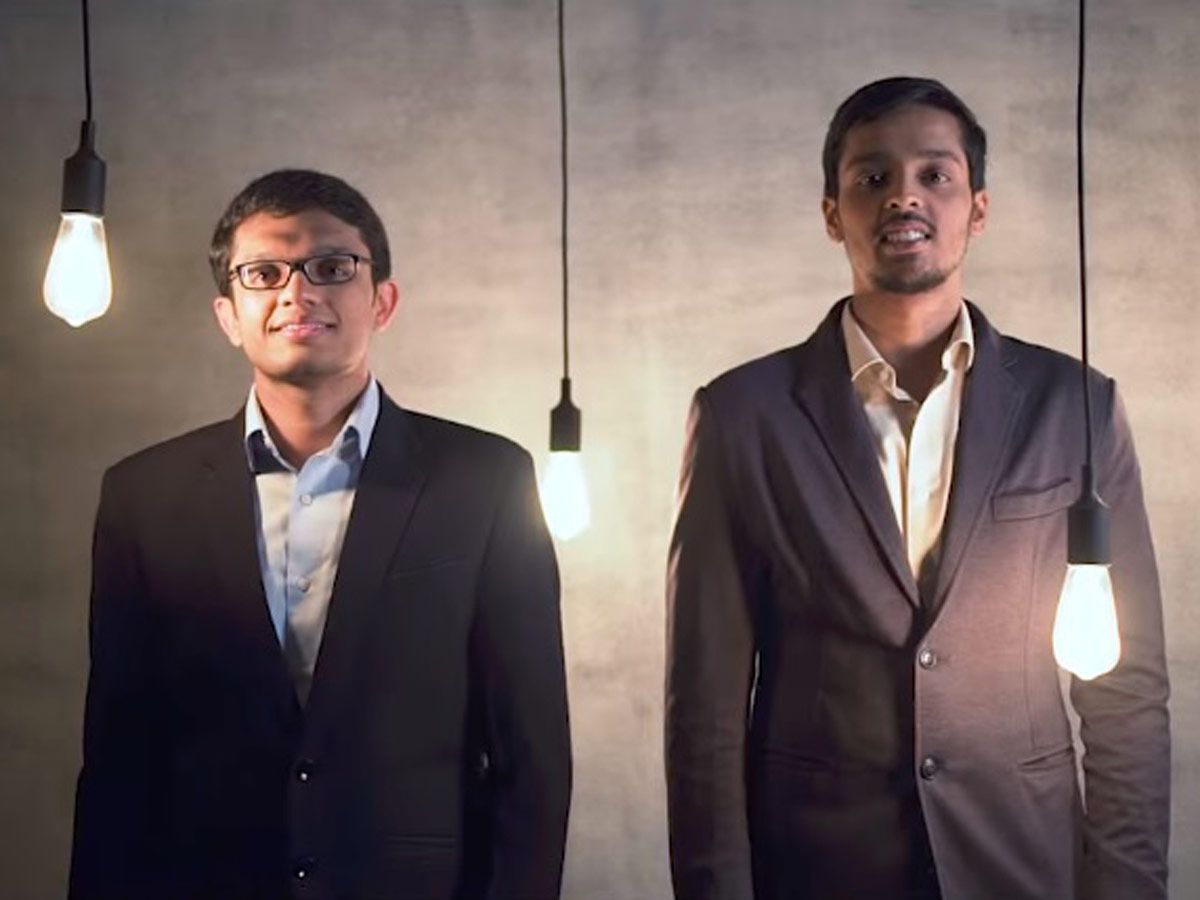(October 4, 2023) By 2030, India aims to meet fifty percent of its electricity requirements from renewable energy sources, causing a tectonic shift in the global fight against climate change. With eight years left, certain cleantech startups have jumped the bandwagon to help the country inch closer to its goal by producing technologies that aim to reduce carbon print by producing eco-friendly products. Global Indian puts a spotlight on startup that are at the heart of transformation and sustainability.
Karma Recycling
What do you do with your old mobile phones? While most waste makes it to the landfills, not much has been thought about disposing of e-waste in India, and to tackle this problem, Aamir Jariwala and Akshat Ghiya launched Karma Recycling in 2013 – a company that buys mobile devices and sells refurbished ones at much cheaper rates. It was while studying electronic waste space in the US that the duo found that their learning could be applied to India. Aamir first chanced upon the idea of recycling and refurbishing while working for a private equity firm that was keen to invest in clean technology. That’s when he decided to join hands with Akshat to launch their startup.

Aamir Jariwala and Akshat Ghiya co-founded the startup Karma Recycling
“When we started looking at the ways people dispose of e-waste in India, we found that most of the market was owned by kabadiwalas (scrap dealers). There was very little emphasis on reuse. So, we knew there was a mountain of mobile devices lying in people’s homes and no one knew what to do with them,” Akshat told Better India.
The company accepts phones in any condition, as Akshat revealed that most of them have small problems. So, they furbish almost 25 percent of them, and if they can’t be repaired, they break them into working and non-working spare parts. “Working parts are used to repair other phones. And the parts that cannot be repaired are recycled responsibly according to our zero-landfill policy. We are also a Government of India authorised electronic waste collector and segregator,” added Akshat, who grew up in Italy and went to college at Northwestern University in Chicago, where he met Aamir.
- Follow Karma Recycling on Linkedin
Oorjan
Solar energy is the future, and India itself is witnessing a joining of forces and commitment from government, industry and entrepreneurs which has brought momentum to the sector. And IIT-Bombay graduate Gautam Das with his batchmates Roli Gupta and Hrishikesh Deshpande are one of the leading entrepreneurs in this space with Oorjan which they founded in 2014 to take solar energy to the maximum number of people.

Gautam Das is one of the founders of Oorjan
“Our focus remains on distributed solar for end consumers – residential, commercial, and industrial. Our technology-enabled design tool offers solar proposals instantly in site so that customers can make purchase decisions faster,” Roli told Mercom India in an interview, adding that the rooftop solar panels sector is growing at the rate of 60-70 percent every year. “There is an endless demand for 1 billion Indians and one is hard-pressed to find a company focused on delighting them. The industry, due to its lack of ideas and innovation on how to acquire customers economically, gravitates to larger projects,” she added.
With operations across 14 Indian states, Oorjan is now planning to come up with solutions that will help recycle solar panel waste.
Log 9
A year after Oorjan, Log 9 – a nanotechnology company – jumped the bandwagon of cleantech startups to revolutionise the energy sector with an innovative zero-emission and low-cost aluminium-air fuel cell. A brainchild of Akshay Singhal and Kartik Hajela, Log 9 Materials develops aluminium fuel cell technology for both stationary and automotive applications. It was in 2017 that they realised that energy storage or battery technologies will be important in the larger scheme of climate change, and that’s when they started using material science competency to create battery technologies.

Akshay Singhal and Kartik Hajela are the co-founders of Log 9
The startup, which raised $2 million in funding from Petronas Ventures in 2021, understood that none of the batteries were made keeping Indian climate conditions in mind. And it was the need of the hour to build a battery technology from the ground up in India. Talking about the seed funding, Akshay told ET, “enables us to accelerate our ongoing mission of introducing our breakthrough InstaCharge (rapid charging) battery technology to a plethora of end-users, and in positioning the startup as the largest Indian player in advanced cell chemistries.”
- Follow Akshay Singhal on Linkedin
OxyGarden
In a post-covid world, hygiene has become of utmost importance as airborne transmission is considered one of the hazards in the spreading of viruses. To curb this, cleantech startup OxyGarden has found a solution by building air sanitizers that help improve the quality of indoor air. It was in January 2020 that OxyGreen launched its first product – Forest- after two years of prototyping and testing. The IoT-enabled garden, which produces 700 litres of oxygen per day and reduces carbon emission, purifies and humidifies indoor air naturally.
Launched in 2019 by Abhishek Gupta, the idea started growing in 2016 after he discovered that the then-existing electric air purifiers worked on only about 51 percent of pollutants. “I wanted 100 percent clean air in my room, but there was no product in the market that worked on the entire spectrum of pollutants,” he told YourStory. That’s when he chanced upon research from NASA that showed the role of plants in purifying the air and eliminating the chances of airborne infections.

Abhishek Gupta launched OxyGarden in 2019
“It has been scientifically proven that the right IAQ index reduces airborne transmission of biological contaminants. Many viruses fail to infect people if the relative humidity level is maintained at around 40 percent. This not only increases the time and distance of the transmission but also reduces the percentage of people contracting the virus,” added Abhishek.
- Follow Abhishek Gupta on Linkedin
Also Read: Changing the face of farming: India’s agro tech startups are reshaping the industry



